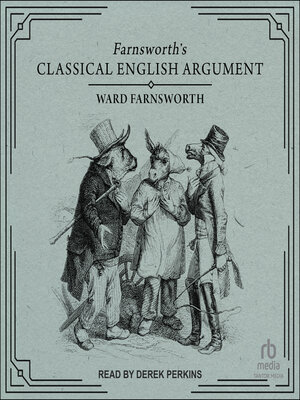
Sign up to save your library
With an OverDrive account, you can save your favorite libraries for at-a-glance information about availability. Find out more about OverDrive accounts.
Find this title in Libby, the library reading app by OverDrive.



Search for a digital library with this title
Title found at these libraries:
| Library Name | Distance |
|---|---|
| Loading... |
Learn how to argue from the masters. This book is a complete course on the art of argument, taught by the greatest practitioners of it: Churchill, Lincoln, and hundreds of others from the golden age of debate in England and America.
The book's concise chapters provide lessons in all aspects of give and take—the syllogism and the slippery slope, the argumentum ad hominem and reductio ad absurdum, the fallacy and the insult. Ward Farnsworth shows how the full range of such techniques can be used or repelled, and brings them to life with examples that are fascinating and instructive.
The result is a must-listen reference that will leave you better able to win arguments and to defend yourself under fire. It's also an entertaining reminder that argument can be a source of beauty and delight. As Farnsworth says of the examples, they show talented advocates "crossing analytical swords and exchanging abuse when those things were done with more talent and dignity than is common today. They made argument a spectator sport of lasting value and interest."
The book's concise chapters provide lessons in all aspects of give and take—the syllogism and the slippery slope, the argumentum ad hominem and reductio ad absurdum, the fallacy and the insult. Ward Farnsworth shows how the full range of such techniques can be used or repelled, and brings them to life with examples that are fascinating and instructive.
The result is a must-listen reference that will leave you better able to win arguments and to defend yourself under fire. It's also an entertaining reminder that argument can be a source of beauty and delight. As Farnsworth says of the examples, they show talented advocates "crossing analytical swords and exchanging abuse when those things were done with more talent and dignity than is common today. They made argument a spectator sport of lasting value and interest."







